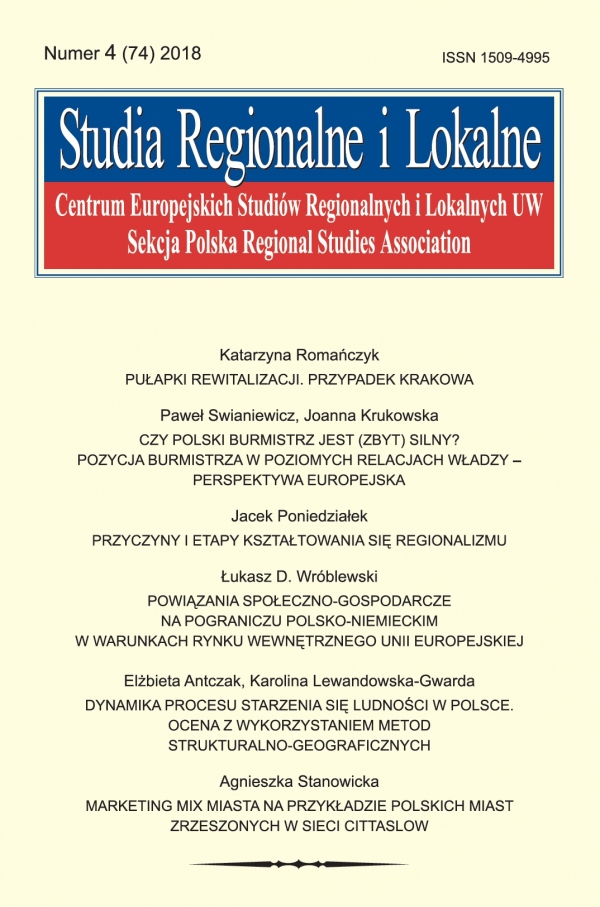Issue:
4(74)/2018
Paweł Swianiewicz, Joanna Krukowska
Is the Polish mayor (too) strong? The role of the mayor in horizontal power relationships – a European perspective
DOI: 10.7366/1509499547402
Czy polski burmistrz jest (zbyt) silny? Pozycja burmistrza w poziomych relacjach władzy – perspektywa europejska
Artykuł porusza zagadnienie zróżnicowania pozycji politycznej burmistrza w państwach europejskich i implikacji, jakie niesie rola burmistrza w poziomych relacjach władzy dla funkcjonowania lokalnych scen samorządowych. W pierwszej części odnosimy się do pomiaru pozycji burmistrza uwzględniającego odmienne uwarunkowania instytucjonalne – m.in. sposób wyboru, zakres kompetencji względem organu uchwałodawczego czy łatwość odwołania przed upływem kadencji. W dalszej kolejności wskazujemy, jak ów odmienny kontekst pozycji politycznej burmistrzów przekłada się na kilka wybranych aspektów ich aktywności, m.in. skłonność do formalnego afiliowania w szeregach partii politycznej, percepcję własnej autonomii w codziennym zarządzaniu gminą przez samych burmistrzów oraz możliwość wieloletniego trwania na stanowisku.
Is the Polish mayor (too) strong? The role of the mayor in horizontal power relationships – a European perspective
The article discusses the differences in the mayors’ political strength in European countries and the implications of their role in horizontal power relationships for the operation of the local government scene. First, it shows how the role of the mayor is measured, taking into account various institutional settings such as the election system, the scope of competences vis-?-vis the legislative body and possibilities of recall before the end of the term of office. Second, it demonstrates how such dissimilar contexts of the mayor’s political strength impact on several selected aspects of their activity, including the propensity to be formally affiliated with a political party, perception of the mayor’s autonomy in their day-to-day management of the municipality and the possibilities to keep the mandate for several terms in a row.
Affiliation:
Paweł Swianiewicz: Uniwersytet Warszawski, Wydział Geografii i Studiów Regionalnych, Katedra Rozwoju i Polityki Lokalnej, ul. Krakowskie Przedmieście 30, 00-927 Warszawa;
pswian@uw.edu.pl Joanna Krukowska: Uniwersytet Warszawski, Wydział Geografii i Studiów Regionalnych, Katedra Rozwoju i Polityki Lokalnej, ul. Krakowskie Przedmieście 30, 00-927 Warszawa;
jkrukowska@uw.edu.pl 


